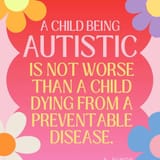>THE BUDDHA'S BAD KARMA: A PROBLEM IN THE HISTORY OF THERAVÂDA BUDDHISM
>by JONATHAN S. WALTERS
>Numen Vol. 37, Fasc. 1 (Jun., 1990), pp. 70-95 (26 pages)
"Buddha's bad karma" is a veritable contradiction in terms. When reading the Buddha biography preserved in the Vinayapitaka and Suttapitaka of the Pâli canon (Tipitaka), one cannot help thinking that Gotama led a charmed life: endowed with physical and spiritual perfection, he transcended the attitudes and attachments that are so often the source of human suffering. The Jâtaka literature explains the perfection (in this life) of Gotama Buddha by describing its karmic roots over aeons of previous lives, during which the Bodhisatta produced unimaginable quantities of good karma. Despite its vastness, the Buddha biography preserved and developed in the Theravâda tradition up to the present contains not the slightest hint that Gotama did anything productive of bad karma; his parinibbana was the extinction of all karma, good and bad.
But embedded within the Pâli canon are records of certain events in the Buddha's life-systematized in later tradition as twelve in number - which were less than pleasant. Even during the canonical period, some Buddhists interpreted these events as the effects of the Buddha's own previous bad karma. Their explanation gave birth to the problem of Buddha's bad karma. The notion that the Buddha suffered bad karma had important implications for both the developing theory of karmic absolutivity and cherished conceptions of Buddhahood...
https://youtu.be/cDSTtMAEJ9w






